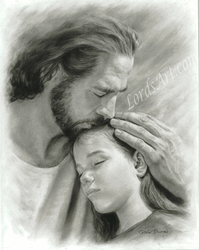FINDING THE PATH TO HEALING
 Dr. Phil, Deepak Chopra, Oprah, and, perhaps even the late Great Soul Mahatma Gandhi, would all agree with this: that the long journey to emotional healing begins with finding the right path and by taking the first step TODAY, not tomorrow, not next week, not "when you're ready," but NOW.
Dr. Phil, Deepak Chopra, Oprah, and, perhaps even the late Great Soul Mahatma Gandhi, would all agree with this: that the long journey to emotional healing begins with finding the right path and by taking the first step TODAY, not tomorrow, not next week, not "when you're ready," but NOW.When we're hurt,deceived, or betrayed,and when we're left badly-scarred by our offender, we tend to "get stuck" in the ugly past and wallow in the mucky quagmire of bitterness, self-blame, and regrets. We say to ourselves, "I will move on when I'm ready...I will forgive when I'm ready...healing will then come and then I'll be ready to move on..."
That healing will JUST HAPPEN is an illusion.Healing doesn't just happen; it is made possible by (1) God's Grace obtained thru prayer; (2) the offended party himself/herself who should work out his/her own healing; and (3)the significant others (family & friends) who love us unconditionally and pray for us at the end of the day.
They say that there's no wound too deep that Time couldn't heal it. But there are memories too persistent that they get in the way of Time's healing action. This is where the Great Healer comes into the picture.
"My Grace is sufficient for you, for My strength is made perfect in weakness...Therefore I take pleasure in infirmities, in reproaches, in needs, in persecutions, in distresses, for Christ's sake. For when I am weak, then I am strong." -2 Corinthians 12:9-10
Healing is only possible when, by God's Grace, we stop hurting and look beyond our own pain and also think of the pain being suffered by our offender. The path to healing can be found only if we're looking at the right direction-- up in heaven, calling upon the Great Healer.
I forgive my offenders. I pray for their healing, too. This is what I feel is the easiest, surest path to healing.







